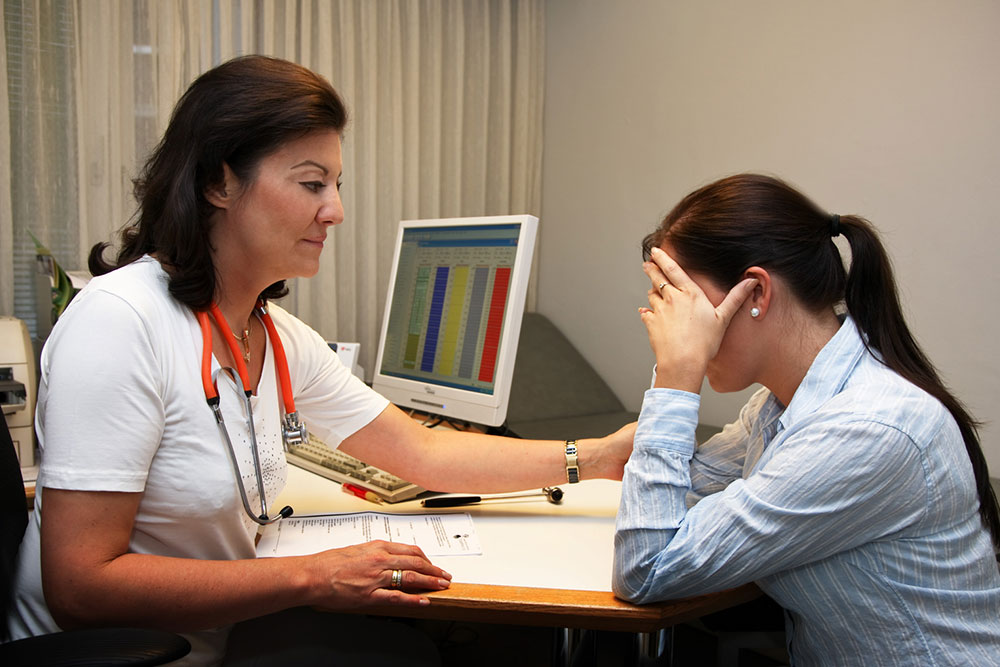
Causes, Symptoms, and Treatment of Ovarian Cancer
Ovarian cancer is defined as the state or process in which abnormal cells inside the ovary start to multiply without any control, and thereby form a tumor. If a tumor is not treated, it can easily spread to other parts of the body as well. This type of specific condition is known as metastatic ovarian cancer.
Ovaries are defined as the two female reproductive glands, which are responsible for producing the ova or eggs. These ovaries also help in producing various female hormones like estrogen and progesterone. It was reported that more than 22,000 women in the country received an ovarian cancer diagnosis in 2017, and almost 14,000 women will be dying from it. There are various warning signs of ovarian cancer, but the earliest symptoms are very vague and difficult to detect. Only 20 percent of ovarian cancers are detected at an earlier stage. So, take a look at some of the more details about this disease.
Causes of ovarian cancer
The exact reason for the occurrence of ovarian cancer is currently unknown. Following are some of the risk factors that you should be wary of:
- Having a family history of ovarian cancer
- Any kind of personal history of colon, breast or uterine cancer
- The onset of obesity
- Using hormone therapies
- No history of being pregnant
- Being old in age is also a risk factor. Most cases of ovarian cancer happen after the onset of menopause.
It should also be kept in mind that, one can have ovarian cancer without having any of the above risk factors. In the same way, having any of these above risk factors doesn’t mean you will get ovarian cancer.
Symptoms of ovarian cancer
The early symptoms of ovarian cancer are:
- Having pain in the lower abdomen, pelvis or in the body’s lower part
- Pain in the back
- Experiencing indigestion
- When eating, the feeling of your tummy getting filled quickly
- Urination becomes more urgent and frequent
- Pain during sexual intercourse
- One can also have constipation, due to a change in the bowel movement.
If cancer starts to progress, here are some other symptoms that might appear:
- Weight loss
- Loss of appetite
- Nausea
- Tiredness
- Breathlessness
Treatment for ovarian cancer
Surgery
Surgery can be done to remove cancer. This is often chosen as the first option. Surgery depends on the stage of cancer.
Salpingo-oophorectomy
This surgery is done to remove the fallopian tubes and ovaries.
Hysterectomy
This surgery involves removal of the uterus and the surrounding tissues as well. Removing the uterus only makes it partial hysterectomy. For women who are in the pre-menopausal stage, menopause will occur after this method.
Lymph node dissection
Lymph nodes near the aorta and pelvis are removed.
Cytoreductive surgery
When cancer spreads beyond the pelvic region, then the surgeon will try to remove as much tissue as possible. This will be done from the gallbladder and other organs. This will help in relieving symptoms and thus make chemotherapy more effective.
Chemotherapy
This is a process in which the cancer cells which have not been removed by surgery are targeted. The therapy mainly takes about 3-6 cycles or sessions. These sessions will be done 3-4 weeks apart so that the body will have enough time to recover. Even if cancer tries to recur, with the help of chemotherapy, cancer cells can be shrunk again.
There are also many side effects related to chemotherapy, namely:
- Loss of hair
- Vomiting and nausea
- Anemia
- Sores in the mouth
- Diarrhea
- Appetite loss
Hormone therapy
This is a procedure in which, estrogen is prevented from reaching the cancerous cells. If the supply of estrogen is cut off, then the growth of the cells will also be cut off. There are also many side effects of hormone therapy:
- Weight gain
- Headaches
- Hair thinning
- Tiredness
- Memory loss
- Changes in the bones and muscles
Radiation therapy
This is a rare method used to treat ovarian cancer. This method is used when there are very small traces of cancer in the reproductive system. This method is also used to treat the symptoms of advanced cancer. The side effects of radiation therapy are:
- Sores in the mouth and gum
- Nausea
- Jaw stiffening
- Difficulty in swallowing
- Decay of teeth
- Mouth becomes dry
Treating ovarian cancer is not always easy, depending on the stage of cancer. And if cancer spreads, then there is no other option than to go for surgery. Still, the above treatments will definitely help anyone with ovarian cancer, and make her life normal again. Fighting cancer is the only way in which you can overcome the fear and regain self-confidence.


